University College Dublin were the overall winners of the 2020 Great Agri-Food Debate. We asked the winning team members to give us their thoughts on all things agriculture, the challenges and opportunities (outside of COVID-19) and what they learned in preparing for the debates.
Next up is Owen Cashman, who previously interned with us in the Irish Farmers Journal and is a fourth year Animal and Crop production student.
About Owen
I am 22 and from a dairy farm in Glanmire, Co Cork and the seventh generation of Cashman to farm at home, something I am very fortunate to say.
Growing up, mam and dad gave me scope to explore a lot of options for my career.
Eventually, when I chose agriculture, I knew it was because I developed a true passion for it. A passion influenced by the work done by my dad (Val) and grandparents (Liam and Kathleen).
Challenge for agriculture
The public perception of farming practices comes from a welfare and environmental perspective. It is very hard to sell what were once known as facts about farming practice, particularly to a consumer who has become disconnected with their food.
It is no longer enough to put the food on the shelf – we are being asked why and how more than ever!
Career in agriculture
I would like to be developing the farm at home. The aim is to deliver a good work-life balance, profitable cows and increased biodiversity and soil health.
I am also keeping my options open to utilise the education I have. Thankfully, there are almost too many options for graduates of agricultural science degrees.
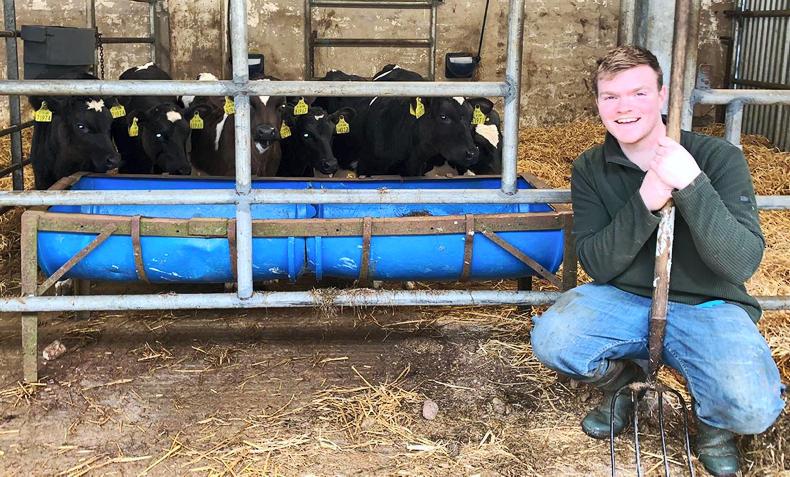
Debating
I am always trying to meet new people in anything I do, socially or professionally, and debating is the perfect place to do so on both fronts.
We had more first years than ever on this year’s team
Having competed in the debate prior to this year, I knew the standard had progressed. I wanted to test myself and measure my own progression against that.
We had more first years than ever on this year’s team. Having the confidence that they do in their first year is something I have huge admiration for.
What did you learn?
The importance of the soil. Whether you are eating plants or animals or both, milking cows, growing barley or producing beef. We all rely on the soil. Alarmingly, on a global scale, it is being neglected. Ireland is vulnerable to the erosion of CAP payments. If subsidies go in the morning, so does our sector as we know it. Acknowledging the importance of the sector must continue in the negotiations of CAP reform and Brexit. Surprisingly, just 1% of the global population identify themselves as vegan (4-6% in Ireland), milk and meat substitutes are being purchased more by “flexitarians”. This creates market competition that the sector needs to face head-on if our product is going to be appreciated by local consumers. Policy
We need the correct implementation of subsidies. Farmers and consumers must know what the subsidies do for one another. Globally, there needs to be a reduction in mono-cultured food production systems.
Opportunities
Every farmer has the opportunity to educate people about food production in Ireland. We must not create an echo chamber and “preach to the converted”. Farmers who live on the outskirts of towns and cities have a huge opportunity in this regard.
We need to bring people in rather than shut them out
We are an export-focused producer, but our resilience starts at home. We need to bring people in rather than shut them out. I see the opportunities really being in the dairy sector, perhaps the renewable energy crops sector and some niche markets in Ireland, such as agri-tourism.
Ireland produces traceable, safe and nutrient-dense food
COVID-19 has brought farmers out of just the food business. Farmers are now in the health business as well. The best way to keep healthy from a virus with no vaccine (aside from hygiene practices) is nutrition. Ireland produces traceable, safe and nutrient-dense food. This presents a great opportunity for us to market our produce when normality resumes.
University College Dublin were the overall winners of the 2020 Great Agri-Food Debate. We asked the winning team members to give us their thoughts on all things agriculture, the challenges and opportunities (outside of COVID-19) and what they learned in preparing for the debates.
Next up is Owen Cashman, who previously interned with us in the Irish Farmers Journal and is a fourth year Animal and Crop production student.
About Owen
I am 22 and from a dairy farm in Glanmire, Co Cork and the seventh generation of Cashman to farm at home, something I am very fortunate to say.
Growing up, mam and dad gave me scope to explore a lot of options for my career.
Eventually, when I chose agriculture, I knew it was because I developed a true passion for it. A passion influenced by the work done by my dad (Val) and grandparents (Liam and Kathleen).
Challenge for agriculture
The public perception of farming practices comes from a welfare and environmental perspective. It is very hard to sell what were once known as facts about farming practice, particularly to a consumer who has become disconnected with their food.
It is no longer enough to put the food on the shelf – we are being asked why and how more than ever!
Career in agriculture
I would like to be developing the farm at home. The aim is to deliver a good work-life balance, profitable cows and increased biodiversity and soil health.
I am also keeping my options open to utilise the education I have. Thankfully, there are almost too many options for graduates of agricultural science degrees.

Debating
I am always trying to meet new people in anything I do, socially or professionally, and debating is the perfect place to do so on both fronts.
We had more first years than ever on this year’s team
Having competed in the debate prior to this year, I knew the standard had progressed. I wanted to test myself and measure my own progression against that.
We had more first years than ever on this year’s team. Having the confidence that they do in their first year is something I have huge admiration for.
What did you learn?
The importance of the soil. Whether you are eating plants or animals or both, milking cows, growing barley or producing beef. We all rely on the soil. Alarmingly, on a global scale, it is being neglected. Ireland is vulnerable to the erosion of CAP payments. If subsidies go in the morning, so does our sector as we know it. Acknowledging the importance of the sector must continue in the negotiations of CAP reform and Brexit. Surprisingly, just 1% of the global population identify themselves as vegan (4-6% in Ireland), milk and meat substitutes are being purchased more by “flexitarians”. This creates market competition that the sector needs to face head-on if our product is going to be appreciated by local consumers. Policy
We need the correct implementation of subsidies. Farmers and consumers must know what the subsidies do for one another. Globally, there needs to be a reduction in mono-cultured food production systems.
Opportunities
Every farmer has the opportunity to educate people about food production in Ireland. We must not create an echo chamber and “preach to the converted”. Farmers who live on the outskirts of towns and cities have a huge opportunity in this regard.
We need to bring people in rather than shut them out
We are an export-focused producer, but our resilience starts at home. We need to bring people in rather than shut them out. I see the opportunities really being in the dairy sector, perhaps the renewable energy crops sector and some niche markets in Ireland, such as agri-tourism.
Ireland produces traceable, safe and nutrient-dense food
COVID-19 has brought farmers out of just the food business. Farmers are now in the health business as well. The best way to keep healthy from a virus with no vaccine (aside from hygiene practices) is nutrition. Ireland produces traceable, safe and nutrient-dense food. This presents a great opportunity for us to market our produce when normality resumes.





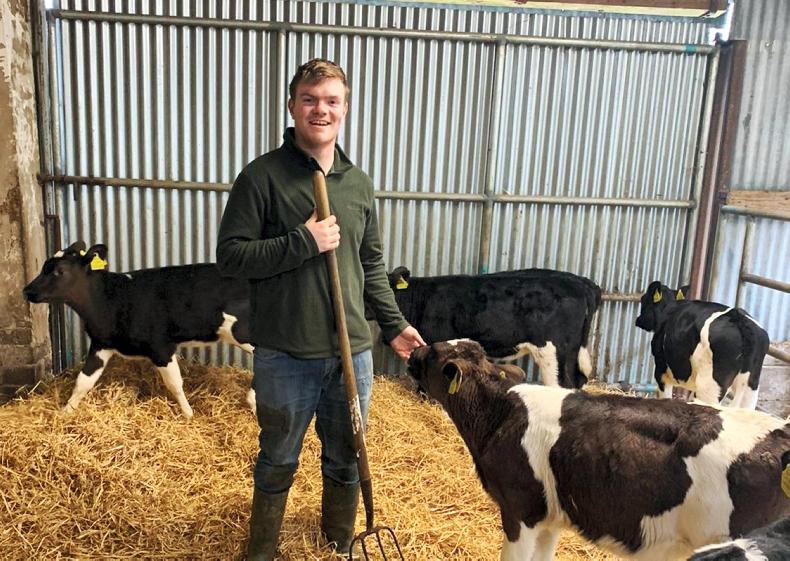
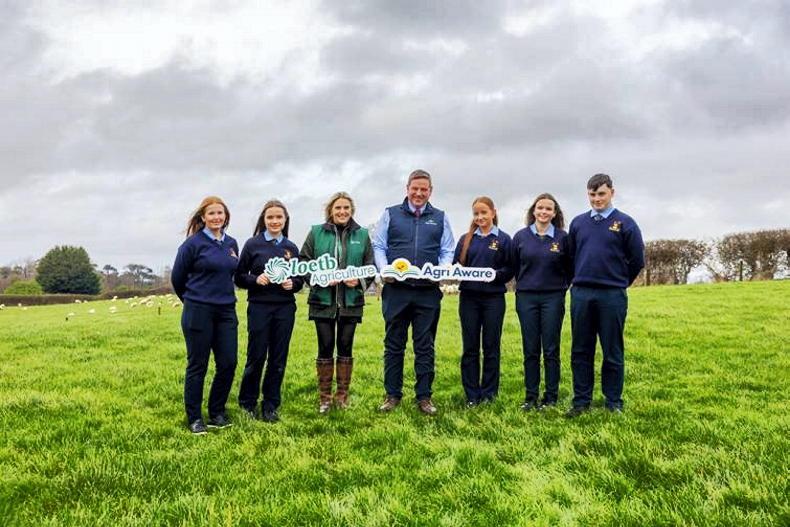
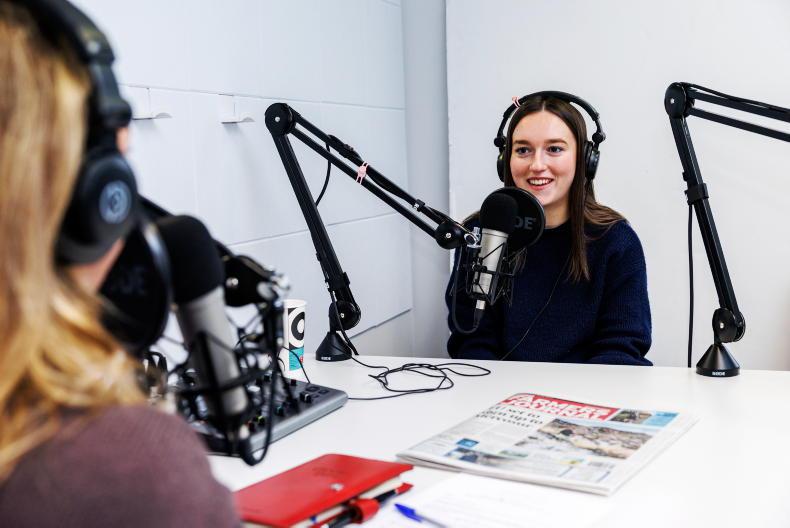
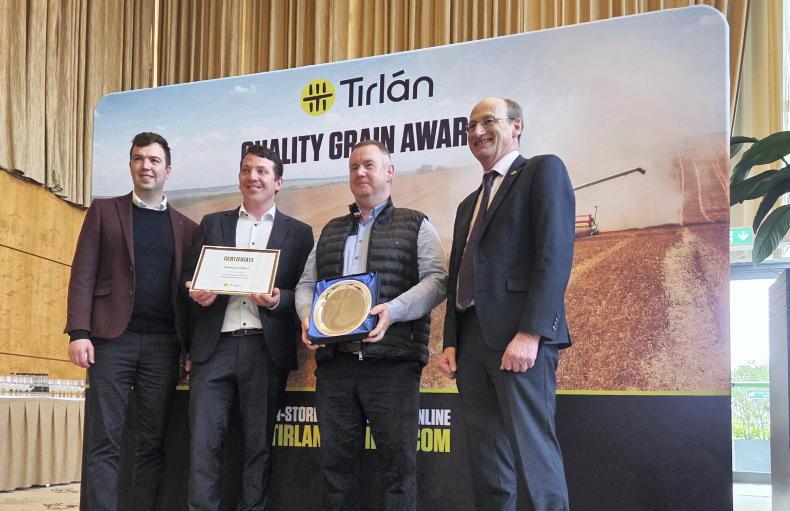

SHARING OPTIONS